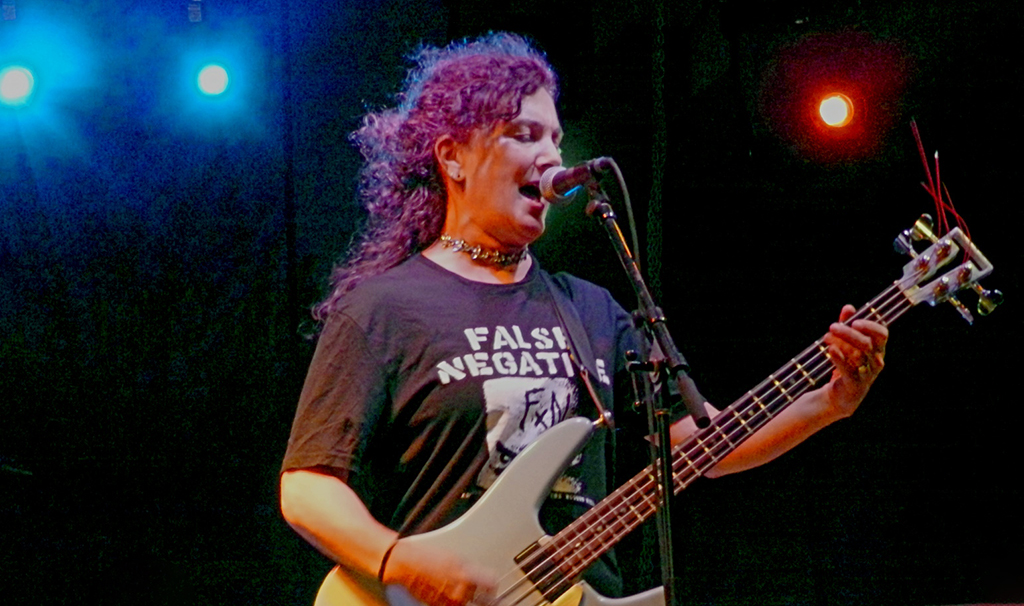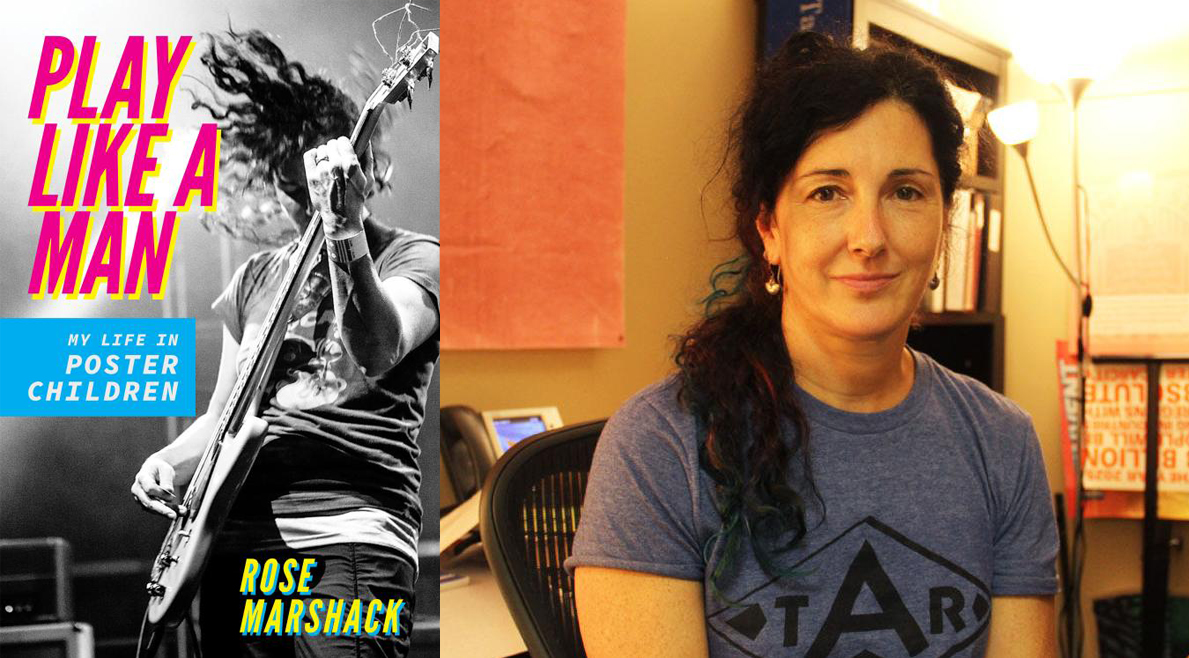“How did an unknown indie-rock band from Champaign, IL, get its first show in New York City and at a bar co-owned by Ron Wood of the Rolling Stones? I attribute it to the kindness and support that embodied the Champaign punk and indie-rock scene during our time.”
Play Like a Man is much more than a touring memoir, though the Poster Children have been touring since 1991 and bassist and author Rose Marshack has logged uncounted hours on the road. In its pages, she chronicles the everyday life of the band through her memories and tour reports, some of which she prints in full. She divides the book into four parts: attending her earliest punk shows in college up through the formation of the band in 1987, the Poster Children pre-major label, their major label years (with all their perils) during the mid-nineties, and the post-major label period from 1997. What makes the book rank highly among music memoirs is that it’s a tour of a scene as well as an account of a band. The Poster Children is merely the group that connects Marshack to the scene — she has all kinds of stories of venues in Champaign-Urbana as they used to be, of meeting her music idols, the perils of signing with a record label (independent or major), trying to keep anything like control over the group’s credibility, and juggling the band with her day job.

Perhaps I’ve been influenced from the beginning, knowing that Marshack is a teacher, but it’s hard not to see a thread of teaching in some form running through the entire book. Her mentors Steve Albini and Ian Mackaye loom large, inundating her and her bandmates with everything they would need to know about navigating the music business as a DIY band. Eventually, the tables turn and she becomes the teacher. “It has taken me a while to acknowledge that life is different for women in some of my chosen fields,” she writes (page 166). “I don’t believe in complaining, and excuses feel like a crutch. Whether teaching in higher ed, practicing martial arts, playing music on stage, or working in computer science, I’ve encountered a bit of baggage that comes onstage with my equipment.”
There’s a moment where she describes playing a show in D.C. in 2016, and afterward, a fan and her daughter came up after the show to introduce themselves and congratulate her (pages 161-2). She describes her feelings in that moment as refusing to teach this young fan that this was something to apologize for, that her years of experience led to this moment where she could take responsibility for both the music she was making and the permission that she was giving other women to be equally unapologetic.
Gender and gendered analysis aren’t the focus of the book, but questions of how to rock, program, and teach while a woman have been Marshack’s constant companions. Being a woman bassist from the Midwest has never been her only draw, however. She also credits then-new media technologies like pkids listservs, internet radio, enhanced CDs, and the band’s punk DIY ethos with its strong connection with fans. Women could seize new roles during the indie rock breakthrough — there began to be a little more room for artists who were outside of mainstream pop styling, and new technologies were beginning to help them prise open new places for themselves in the industry.

There are also a few moments of negotiating everyday sexism with the band. At one point all of the male members thought of growing mustaches as a kind of male bonding ritual. She responded by threatening to go onstage in ”skimpy” clothing (which her male band members reportedly hated). Marshank was less put off by being left out of the “mustache club” than she was by the aesthetic choice. The Poster Children, she writes, had never been a mustache rock band. The “mustache club” moved on, and she never made good on her threat.
Marshack manages to write a joyful memoir about band membership and touring that somehow still expresses the tension between wanting to tour and wanting to be rooted. She describes touring as a lifestyle, one that you can get in and out of the habit of doing. When you’re rooted at home you have a community and things to do and too many houseplants to take care of; when you’re on the road you gain a clarity, a present-ness that it’s harder to have when you stay in one place.
“I went to work today at the university,” she concludes, re-hashing a note from 2002 (page 200). “Then I went to the chiropractor… Then I went to Tibet Night and learned how to Non-Meditate… Then I came home and my wish has come true. We are going on tour again.”
You can order Play Like a Man from University of Illinois Press, Jane Addams Books or The Literary. Follow Marshack on Facebook, Linkedin, and on Twitter/X @rosepkid. Publication of Play Like a Man was supported by a grant from Illinois State University.
You can see Rose speak about her experiences at PYGMALION this Friday, September 22nd.
Rose Marshack
Analog Wine Library
129 N Race St
Urbana
F September 22nd, 6:30 p.m.
Free








